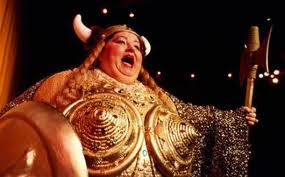I'm sure that we've all played games that either drift along boringly until everyone gives up or finish according the rules, but no-one really knows who had the better of it. That's why I was delighted, no - make that ecstatic, that the crusades game that we were playing finished in such a clear cut and definitive manner. Obviously it would have put the icing on the cake had I won in such a fashion instead of, well, not winning as such.
 |
| An old school wargame reaches the end of bound one |
Now I have been playing Piquet style wargames for more than a decade now and I don't think that I have ever seen a side lose by all their commands failing Army Morale simultaneously with all their original commanders being dead. That's what happened to the Turks last night, and considering that the three commanders in question were the emir and his two sons it doesn't bode well for the dynasty. The only good news for the defenders of the holy places was that the Christian rearguard commander, who was useless to start with and in pretty much every respect had a stinker, will without doubt be the one to get all the glory when the minstrels' songs are sung. Hopefully for the Seljuks he'll be promoted.
 |
| "And then didst thou what, Sir Robin?" |
I've said it before, but I shall say it again because, after all, I am a blogger with a page to fill; the real beauty of Piquet and its derivatives is that we could play this game a thousand times and not get the same result. That's not just because I would enter my commands in more sensible places next time (although I would), but because it's all on the turn of the cards and the roll of the dice. Peter had a wild card in his deck, which he always used as a March, and I had a Like Hail, which should have been really useful given my preponderance of horse archers. However, my dice rolling on shooting was dreadful, but only really on shooting. By contrast, whenever rolling against Peter's attempts to rally or bring on new leaders (his - except the useless Sir Robin - were a bit prone to dying as well) I rolled consistently high. It's a funny old game.
The next bit is not easy to write. I have a couple of complaints about the rules. Shock Horror! You dare criticise rules written by the legendary James Roach and his superhero sidekick Peter Jackson? Indeed so. However before I get on to that, the dynamic duo have complained about the photo of them that I used last week, which showed them wearing suits. So here is a picture that they have approved for use in future.
 |
| Sir Robin. Unfortunately Baron Batman rolled a 1. |
Anyway, the rules that I don't like relate to horse archers, admittedly a rather esoteric issue, but nevertheless one that I feel strongly(ish) about. Should I ever actually get a wargames room (although somewhere to live would be a start) the opening game will be a replay of the siege of Bluddy Nora, a Hussite wars game that I staged before, and it will feature horse archers.
Firstly, I think the evade rules don't work. Evade, which is compulsory for units in whirling mass, is treated as analogous to rout in terms of where one can move, although not strangely in terms of distance. I would treat it as analogous to opportunity fire, in other words as a move taking place in the opponent's initiative; similar again to the opportunity charge in standard Piquet. And just like opportunity fire I would have it take place first, when the enemy unit first declares that it will move into contact with you rather than commencing on contact. I would allow the evading unit to move its full move (as adjusted for being vexed etc) and and anywhere except in the path taken by the full move of the enemy unit, even though that enemy unit - which would only commence its move after the evading unit had finished - would not be required to move its full move. In fact they would not even be required to move at all, although they would be deemed to have moved one segment by making the horse archers evade. Any unit evading would be marked and not be allowed to move on their next move card. It would however be able to evade again in this or any other enemy initiative without further penalty. All references to moving above are completed on a segment by segment basis as usual. In addition a unit that evades off the table should be allowed to attempt to return using the rules for units that pursue off the table that are in at least one of these family of Fob inspired rules.
Secondly, I don't think the rules about compulsory charges for tribal units work although it's a bit hard to say that for sure because we didn't have any examples occur. They used to happen on firing, but that was changed because the further away one was when one fired the more likely one was to charge which didn't make a great deal of sense. The problem with having an impetuous charge happen on a roll of one on a move card seems to me to be that it is always therefore associated with the rest of the command not going anywhere and I don't see why one would want that. My proposal is that the test for uncontrolled charges is made on a Major Morale card should the usual conditions apply. After morale checks, routers and returning officers have been done, any units subject to this and close enough would roll the command dice (possibly adjusted for attached commander, command radius and whatever else seems appropriate) and on a natural one would charge home. I think that this would also work for arrogant chivalric units subject to impetuous charge - think Agincourt or that battle in the Balkans whose name I can't remember where they all died due to charging without support.
Controversial or what?


































